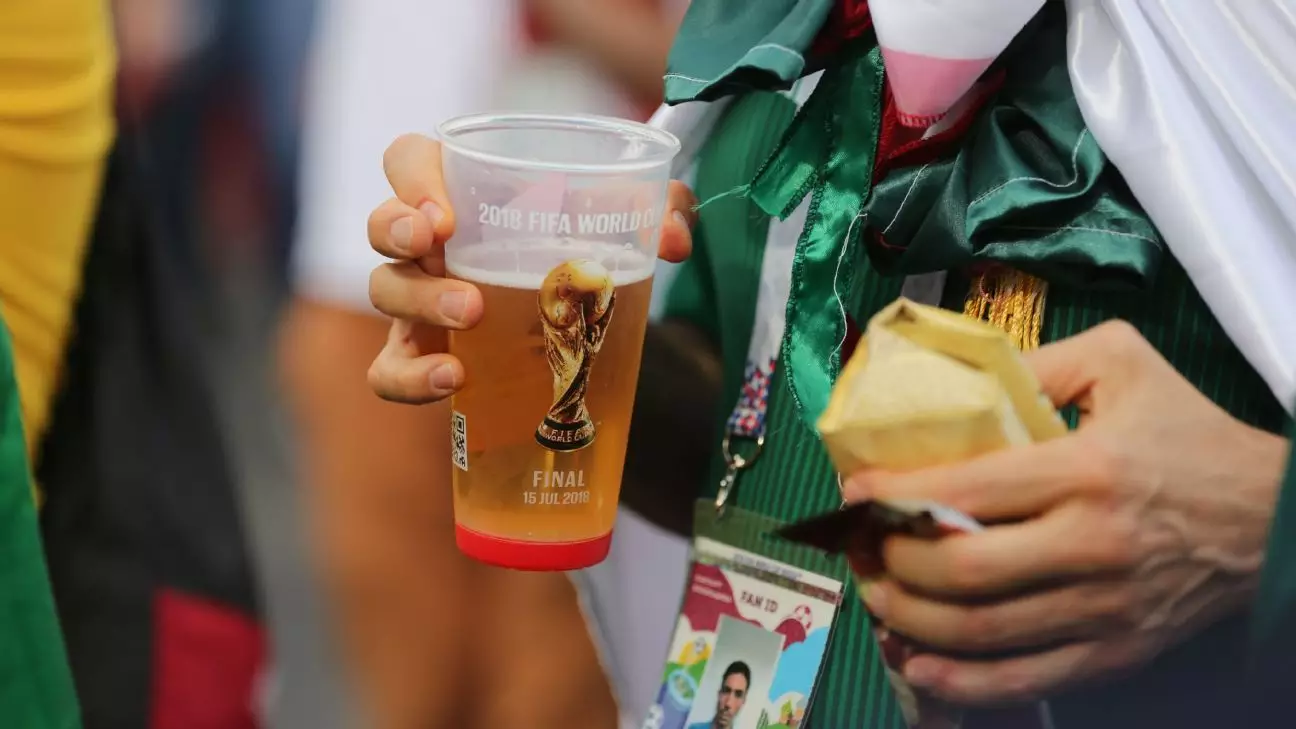The decision to host the 2034 World Cup in Saudi Arabia has sparked discussions that extend far beyond the realm of football. Prince Khalid bin Bandar Al Saud, the Saudi ambassador to the United Kingdom, recently made headlines by confirming that alcohol will not be permitted during the tournament. This announcement speaks volumes about the complexities of hosting global events in nations with distinct cultural and religious practices. As the world faces diverse challenges and expectations, it becomes imperative to explore how such a significant sporting event can coexist with a country’s traditional values.
The ambassador’s remarks underline a crucial aspect: the need for visitors to respect Saudi culture while attending what is often dubbed “the world’s game.” Al Saud emphasized that while alcohol will not be sold—neither in stadiums nor in hotels—“plenty of fun can be had without alcohol.” This sentiment challenges long-held notions of sporting events as social gatherings centered around intoxicating beverages. The suggestion that enjoyment is not intrinsically linked to alcohol invites a dialogue about sportsmanship, camaraderie, and celebration in a non-alcoholic context.
Despite the progressive image that many associate with sporting mega-events, the stark contrast of cultural contexts can create friction between expectations and reality. The ambassador humorously implied that those unable to enjoy themselves without a drink might need to reconsider their priorities, thus reinforcing the notion that the event will be tailored to Saudi standards rather than a Westernized perspective on entertainment.
Only recently did the world witness the alcohol saga that accompanied the 2022 World Cup in Qatar. In that instance, just days before the tournament’s kickoff, discussions led to the last-minute decision to allow alcohol to be sold at designated areas. This preemptive measure seemed a direct response to international pressure and a bid to avoid reputational damage. Saudi Arabia’s refusal to accommodate similar pressures signifies a potential shift where hosts may be less willing to alter their customs for the sake of global acceptance.
The ambassador’s assertion that “it is not a Saudi event; it is a world event” provides an interesting perspective. By framing the World Cup as a collective experience, he invites a broader conversation about inclusivity while simultaneously standing firm in the country’s commitment to its values. Thus, stakeholders must navigate a delicate balance between ensuring a welcoming environment for international fans and upholding local traditions.
Amidst the discussion of cultural policies, the hosting of the World Cup in Saudi Arabia raises significant human rights concerns. Groups like Amnesty International have voiced apprehensions over migrant workers’ treatment and potential abuses, highlighting the need for caution. Furthermore, the risks facing LGBTQIA+ individuals in a country where homosexuality can lead to severe penalties present a troubling juxtaposition to the ideal of a globally unifying event.
The ambassador’s assured claim of welcoming all fans must be critically assessed within the broader framework of human rights advocacy. It prompts a reflection on whether true inclusivity can materialize in a context marked by legislative restrictions. For many, the challenge remains: can a sporting event truly embody the spirit of global unity when set against a backdrop of stringent laws?
The upcoming 2034 World Cup in Saudi Arabia will undoubtedly be a watershed moment, where sport becomes a medium for cultural exchange. The absence of alcohol may reshape the landscape of fan interactions, compelling attendees to reconsider typical narratives surrounding sporting events. However, as the world moves closer to this event, a vigilant examination of the rights and experiences of all individuals attending will be essential. In the end, respecting cultural practices while advocating for universal human rights will be pivotal in ensuring that the beautiful game remains a celebration for everyone.
